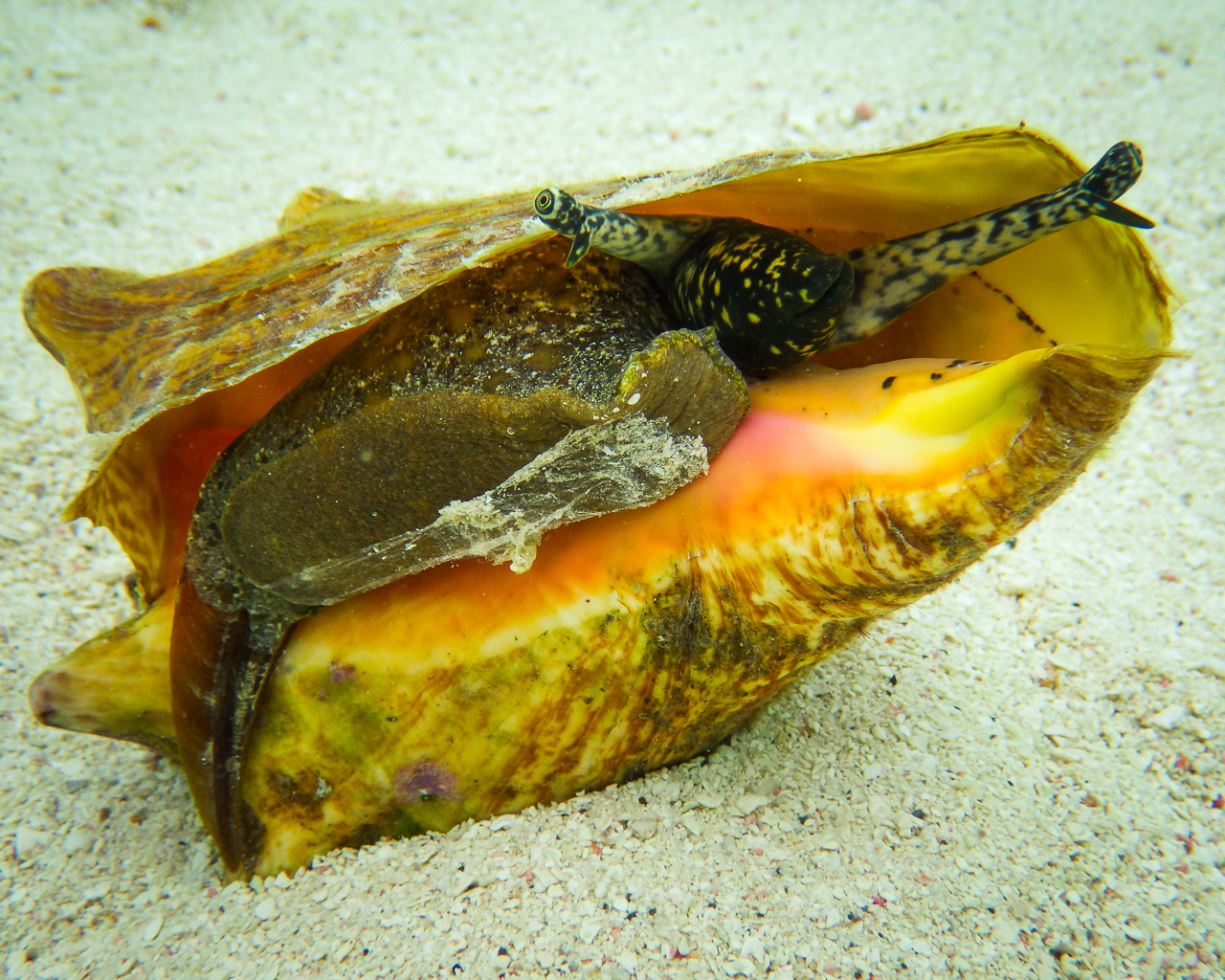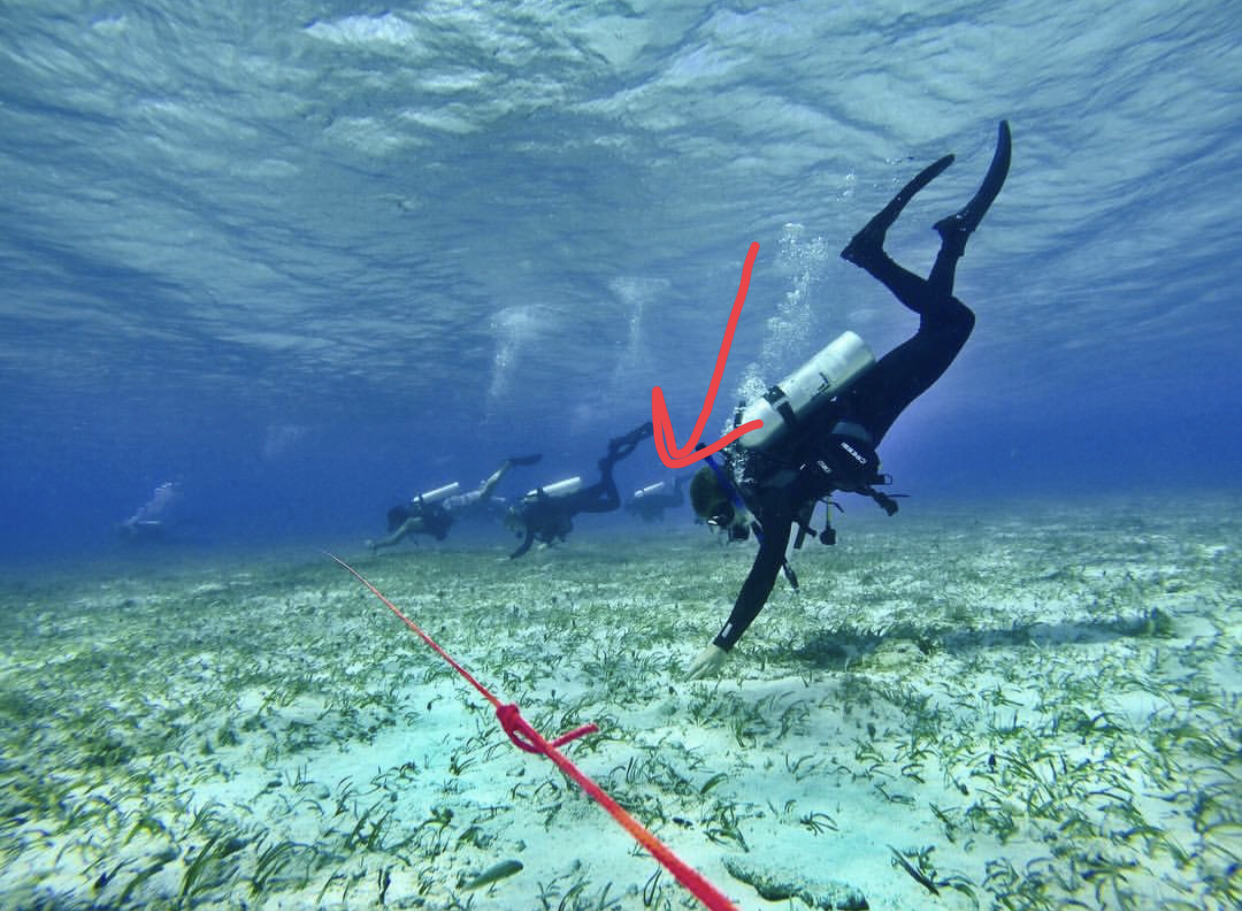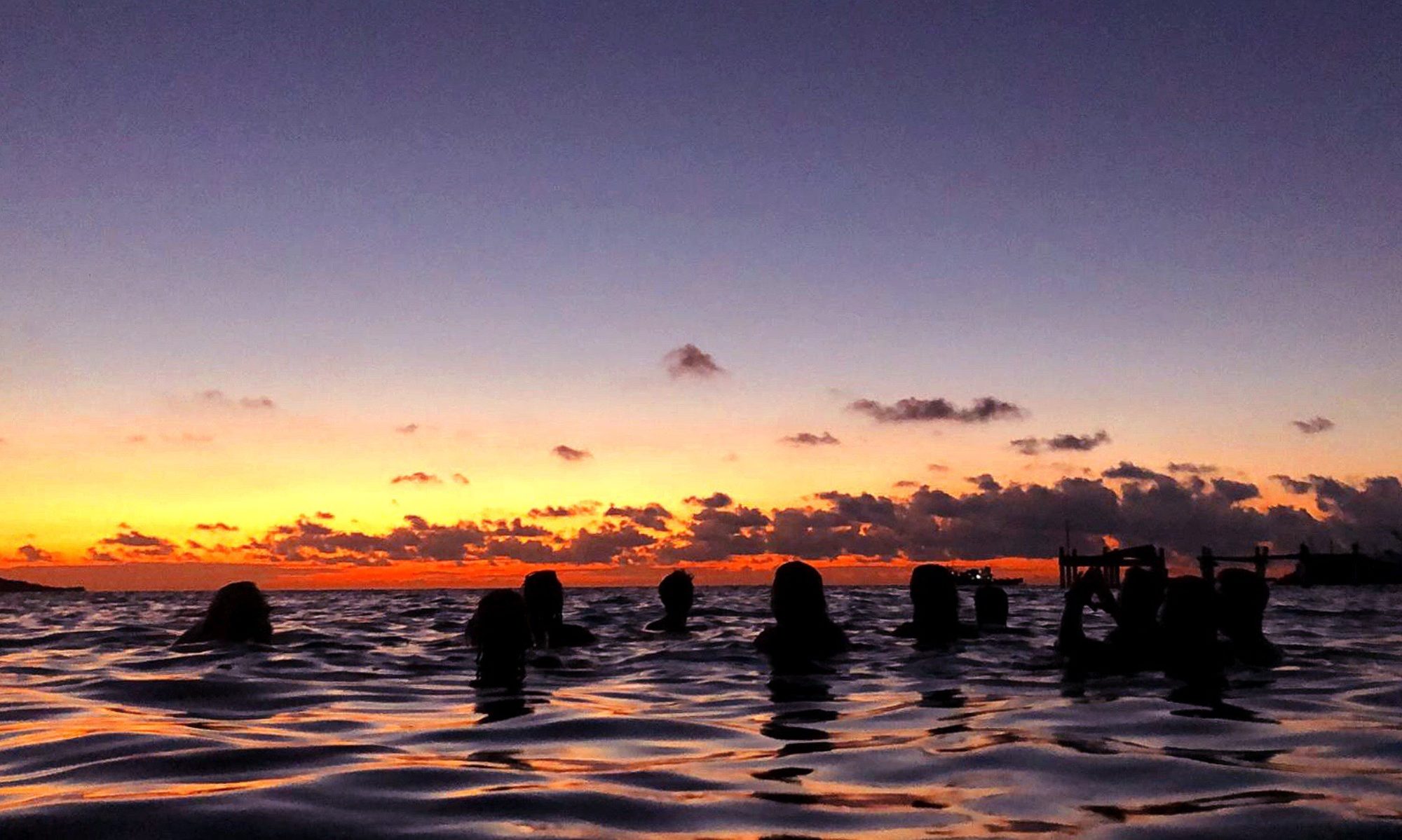After finishing our Resource Management, Marine Ecology, and Environmental Policy courses, we have a few weeks set aside to focus completely on our directed research projects. The 34 of us divide up into several groups, all focusing on different scientific questions relevant to South Caicos. Some groups are focusing on coral, others on fish. New coral diseases and other parasites are even being seen and classified for the first time here. I have the pleasure of conducting a unique project with queen conch, Lobatus gigas.


Queen conch are a commonly fished mollusk on South Caicos, making them an important export and essential aspect of the country’s economy. Understanding how queen conch react to the historical fishing habits of the locals is a challenge surrounded by superstitions and various myths. Our project, titled “The midden myth: The behavioral response of queen conch (Lobatus gigas) to shell middens,” addresses one of these myths. When fishermen catch the conch, they typically “knock” them, removing the meat from the shell to ease the shipment process on their small boats. Typically, the shells are discarded in piles on the ocean floor, which are called “middens.” We hypothesize that queen conch actively move away from the presence of a freshly knocked midden pile. Would you want to sleep in a graveyard? The literature indicates that olfactory cues and stress signals may be involved.
To debunk the myth, we all SCUBA dive to conduct visual surveys at specific sea grass bed sites in the East Harbor Lobster and Conch Reserve. Unlike any other project, we also spend hours interviewing local fishermen about their thoughts on the midden myth. Combining the experiment and social science aspects really produces an interesting and well-rounded result. Updates to come!




